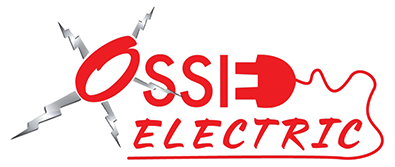Electric Car Charger
95% of electric car charging is done at home. If you are using a standard 120V connection and there have been too many times when you are waiting for your car to recharge before you can get back on the road, call us at Ossie Electric for a free consultation and expert installation of an automobile high-speed charger or EVSE (electric vehicle service equipment) in your home.
Chevrolet and Tesla now have electric car models with driving range in excess of 200 miles. Improved functionality coupled with lower costs makes ownership more viable for many. Despite overall car sales declining almost 2% in the United States during 2017, the units of electric cars sold increased 26% to 199,826 during the same period.
What could supercharge sales to that next level would be the expansion of network infrastructure and support - that is charging stations and repair expertise. However, with barely 1% of new cars being electric and with resistance from certain vested interests, it may be a while before a network as ubiquitous as say, gas stations.
Until then, you’ll have to rely on yourself for recharging solutions that take less than 12 - 20 hours to charge most models. EVSE can be level 2 (a few hundred to over $1,000 in cost) or level 3 (potentially $10,000+). For most users, level 2 is sufficient.
Before investing in this upgrade, you’ll need to consider three things:
- Your driving habits and needs.
- Recharging options along your typical route.
- Time it takes to recharge your auto using standard 120V connection.
Even if you improve your capabilities, you’ll still need to plan your charging routine to save time, money and to maximize your car’s availability for transportation. If you are concerned as to whether this investment will add resale value to your home, you have the option of getting a portable EVSE that you could take with you should you move.
Tax incentives or TOU (time of use) discounted electricity rates may be offered by certain jurisdictions or utilities. There are websites and apps that chart out the location of charging stations at, say, shopping centers or commuter rail stations. Some stations may be quick charging and free but others, neither. The toll networks typically require an account or card but many offer a “Trip Planner” to inform you of your options.
The table below provides a snapshot of estimated time to charge assorted models comparing a standard 120V charge to a level 2 EVSE. The last column is an estimate of driving range added in one hour using a 3.3 watts level 2 EVSE. For example, a Ford Focus Electric would take 18 hours or three-quarters of a day to charge using a standard connection, but only 7 hours or overnight using level 2 EVSE. If you had only one hour to charge this car, an EVSE would add 22 miles of range compared to 4 miles of range via standard charge.
| 120V Charge Hours | 240V Charge Hours | Miles 1HR EVSE | |
| Chevrolet Volt | 13 (midpoint) | 3 | 11 |
| Ford Focus E | 18 | 7 | 22 |
| Ford C-Max E | 7 | 3 | 11 |
| Chevrolet Bolt | 52 (midpoint) | 16 | |
| BMW i3 | 15 | 6 | 25 |
| Volvo XC90 T8 | 7 | 3 | |
| Nissan LEAF | 18 | 6 | 11 |
| Honda Fit EV | 14 | 5 | |
| Toyota Prius Plugin | 3 | 2 | 11 |
| Tesla S | 59 | 22 | 29 |
If you need to have your car fully charged each day and that cannot happen overnight with a standard connection, then you should upgrade to EVSE. There are additional scenarios where it would make sense for you to elect this option.
Consider whether you need to consistently charge your battery entirely. Once past 50% full, charging electric cars slows or “tapers”. Above 80% full, an incremental unit of charge takes significantly longer compared to say 5% full. While not technically correct, think of this as “diminishing returns” for purpose of illustration. You’d have no such restriction with your own private EVSE and could charge your car up to 100%.
You went “green” with your automobile to fit your values. Now mate your choice with suitable equipment to fit your lifestyle. If you need EVSE, call us at Ossie Electric for an expert installation.
